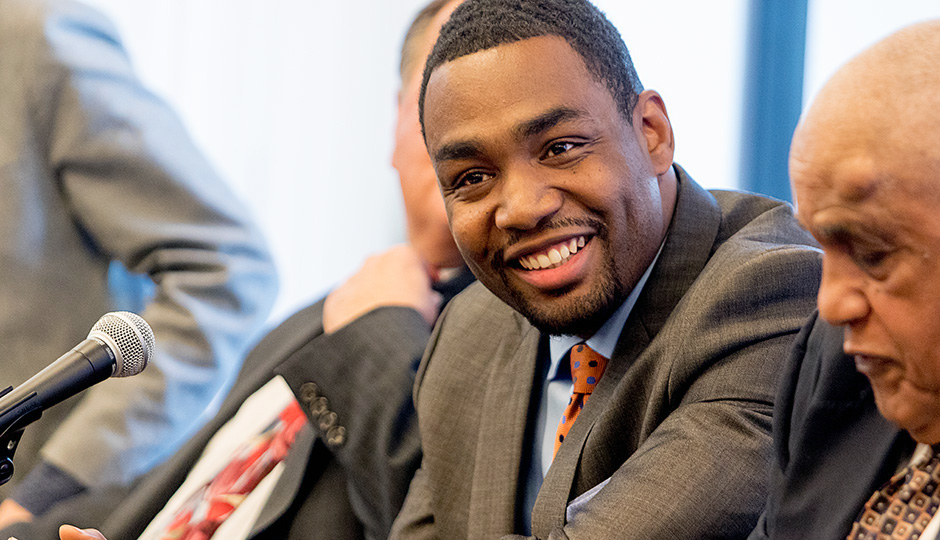Who’s the Best Mayoral Candidate For Small Business?
The U.S. Census reports that there are more than 100,000 small businesses within the city limits of Philadelphia. And that number’s probably understated because there are likely many SOHO (small office home office) and part-time independent contractors not considered. Plus there’s been economic growth since the data was accumulated.
But no matter. The fact is, hopefully, there will be a lot of small business owners voting in tomorrow’s primary. And if you’re a small business owner and a registered Democrat (I’m not, so I can be agnostic here) and your main concern is who will be the best Democratic candidate for your business, then there’s really only one choice. It’s Doug Oliver. And for these three reasons.
He has the most business experience. That’s because he actually HAS business experience. Oliver has an executive MBA from St. Joseph’s University. He worked in advertising and was a senior business development executive at PGW. He has both for-profit and non-profit experience. He spent countless hours as an advisor to Mayor Michael Nutter. He is arguably the best communicator of the group. None of his opponents have this kind of experience. Jim Kenney and Anthony Williams are career politicians. Lynne Abraham is a seasoned district attorney. It would be nice to have someone in office who can genuinely empathize with the challenges both small and large business owners face. Oliver’s promise to invest $1 million in a startup fund and to bring in additional funds from our larger companies and universities for STEM (science, technology, engineering, math) programs and even his support of local farmers have more substance and chance of succeeding than his opponents’ empty claims being “supporters” and “recognizing the importance” of small business. Oh, and he’s not “fighting” for a higher minimum wage either, a relief to many city small business owners too.
He’s the only candidate who is proposing specific tax decreases. All the candidates talk about the need to fund the schools and balance the budget. Unfortunately, many of their proposals were shot down by the City’s Controller and Mayor Nutter, who wants increases in property taxes. Oliver’s proposals, like re-negotiating leases and letting bars stay open later would face their own hurdles and still come significantly short of what’s needed. But there’s one thing that stands out. He’s on record for reducing taxes. And that is music to a business owner’s ears. Oliver wants to reduce the city’s business privilege taxes and lower the wage tax in addition to offering (like other candidates) credits to companies who create jobs. And when it comes to education he’s the only candidate that comes even close to addressing the real problem that faces our school system: Costs are just too damn high. “In this climate,” he says on his website. “We can’t count on funding from the state. Even as we continue to push for a fair funding formula out of Harrisburg, Philadelphia may need to make tough funding decisions to educate our children.” What does he mean by tough? That brings me to the next thing.
In regard to the schools and city budget, he’s not in debt to the city’s unions or large donors. The minute someone’s endorsed by the Teachers Union, like Kenney, you can say goodbye to any possibility that that the often excessive entitlements (pensions, healthcare) enjoyed by many of those teachers that are crippling the city’s school system can be tabled for discussion. Unlike Kenney and Williams, who have received millions from the city’s unions (and in Williams case, hedge fund managers with their own agendas) Oliver has no strings attached to him. Any business owner can tell you that a budget can’t be balanced without addressing both revenues and expenses. Raising taxes and begging the state every year without substantive changes to the way teachers (and more importantly: retired teachers) are compensated has to be considered. (Abraham, known for her toughness, doesn’t even plan to touch the current collective bargaining agreements in place for current school system and city employees). A fiscally stable city budget and school system is critical for the success of our city’s businesses. Oliver is the best candidate to tackle that because he’s so unencumbered. Assuming he has the testicular fortitude to do so if elected, of course.
Sure, Oliver is young. He’s less experienced. He has little by way of campaign funds and no institutional backing. And most obviously: he’s not going to win this race. The numbers are too stacked against him. And why is that? It’s because Oliver isn’t a career politician, receives no union backing and talks about making “hard choices” that no entitled employee wants to hear. And that’s a shame. Because those hard choices are the kinds of things small business owners must make every day in order to stay in business.
Follow @GeneMarks on Twitter.



